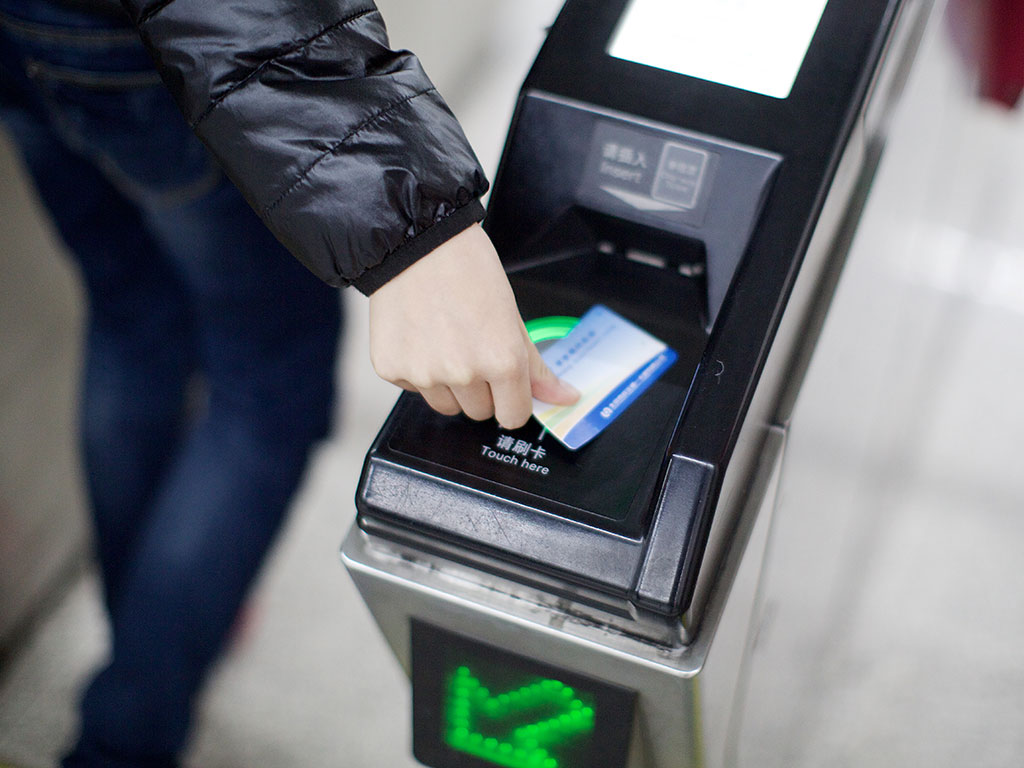A cashless world will make us bad with money
Governments, economists and financial institutions are all calling for a cull of cash, but Aaran Fronda doesn’t think the benefits of a cashless society outweigh what we stand to lose

A man uses his card to ride the underground in Beijing, China. Some experts have suggested that having cash helps people regulate their spending behaviour
A world without cash is coming and sooner than you might think. From next year, all retailers across Europe will have to accept contactless payments, and, by 2020, every single payment terminal across the region will give consumers the ability to tap and pay, according to MasterCard’s Senior Vice President Mike Cowen.
And it isn’t just financial services companies that are calling for a cull on cash: a number of high-profile economists are too, including the German Keynesian economist and member of the German Council of Economic Experts, Peter Bofinger. In an interview with Der Spiegel, he labelled coins and banknotes “an anachronism” that make it harder for central banks to enforce monetary policy, such as applying negative interest rates with the intention of stimulating the economy. Even governments are getting on board, with Danish authorities saying retailers could no longer be legally bound to accept cash as early as next year.
[P]hysical representation of value, such as paper currency, helps individuals exercise restraint
Cutting crime
This drive towards a cashless society is clearly a concerted effort from a number of influential institutions, and there is much to gain in ditching paper for plastic. For starters, it would help reduce certain types of crime, namely robbery. In a world without cash, there would be no need for people, personnel, shops or even banks to handle or hold it, which removes a big incentive for criminals, as the likelihood of walking away with anything would be significantly diminished. In fact, one would-be Swedish bank-robber had his plans scuppered a couple of years ago when he tried to force a bank teller in central Stockholm to hand over some krona, only to find out the branch no longer held cash.
Removing cash from circulation is also great news for governments – especially at a time when so many have budgets in need of balancing – as it allows them to enhance their tax base: cash-in-hand deals will be made obsolete as all transactions in the economy leave a digital footprint that can be traced. There are even those who contend an end to physical currency transactions will have the power to constrain the shadow economy and its trade of illicit goods and services.
The pain of paying
But despite advocates’ best attempts to publicise the benefits of a cashless society, there are some who urge people to think about the wider value of money, before banishing it for good.
Michael Busk-Jepsen is a Professor of Sociology at the London School of Economics and the author of The Social Life of Money. While he understands the attraction of a world where cash is obsolete, he argues it still has a role to play. “Cash is a more socially inclusive form of payment and allows us to escape the grasp of ‘big data’ when we use money”, he told The Guardian. “I don’t think the use of cash should be stigmatised or banned. Notes and coins still have their uses, and our attachment to them manifests itself in all kinds of surprising ways, such as with ‘real’ representations of bitcoin.
“Complementary currencies – the Brixton pound [a local currency in use in South London], for example – also use notes, and their organisers attach quite a bit of symbolic significance to the physical representations of the special qualities and identity of these particular forms of money. Anyone who has seen the Brixton £10 note – the ‘Ziggy’ – will know what I mean.”
The meaning of, or for a better word, the value that we ascribe money helps regulate our spending habits, with a report by the American Psychological Association finding that, “there is a tight coupling of the consumption and the payment, thereby accentuating the pain of paying. In the case of credit card purchases, actual parting of the money occurs after the purchase decision, thereby dulling the pain of paying”.
What this means is that a physical representation of value, such as paper currency, helps individuals exercise restraint – something that could come in handy in such a debt-filled world. But in a consumerist culture and economy, self-control and saving are a hindrance to growth. And so, with negative interest rates becoming commonplace, coupled with a curtailing of cash, the incentive to spend rather than save has never been greater. How this will impact the stability of the world’s economies is yet to be seen.













